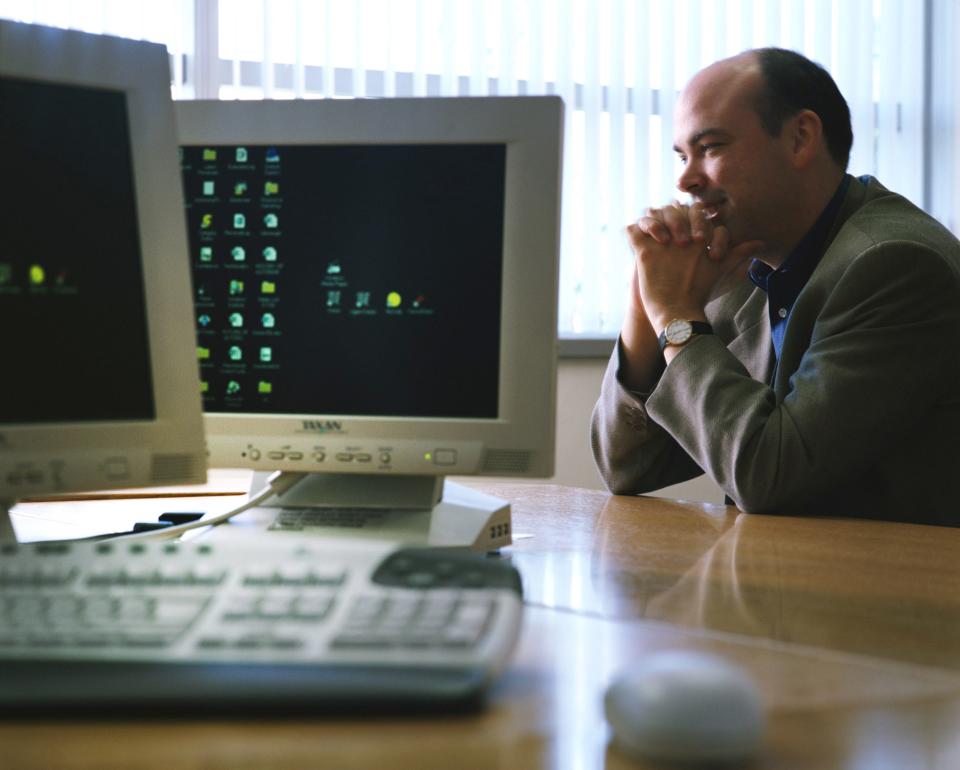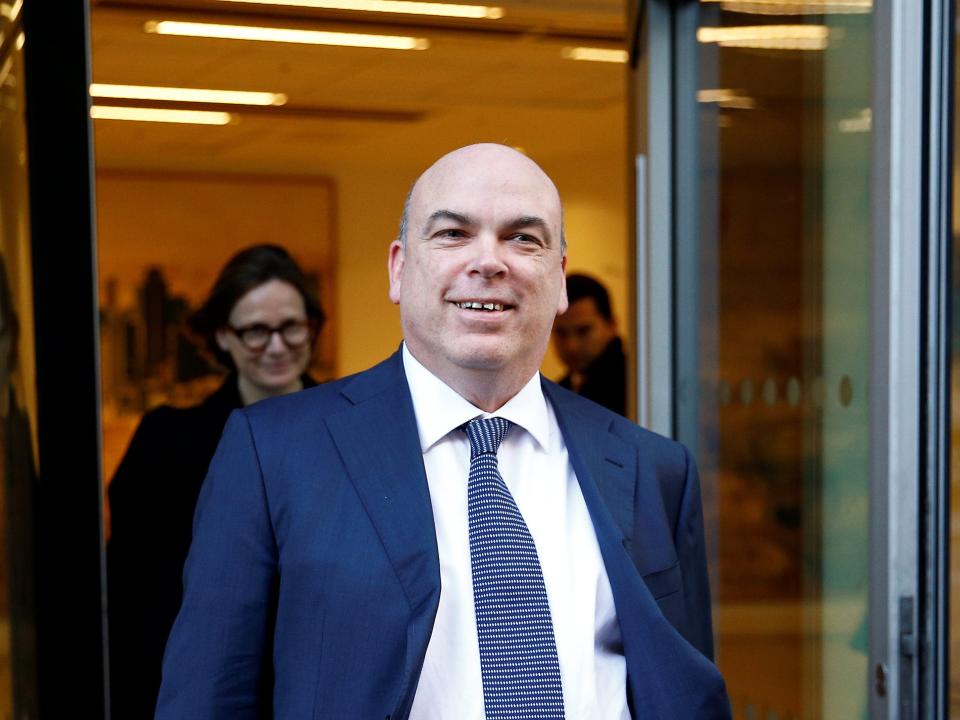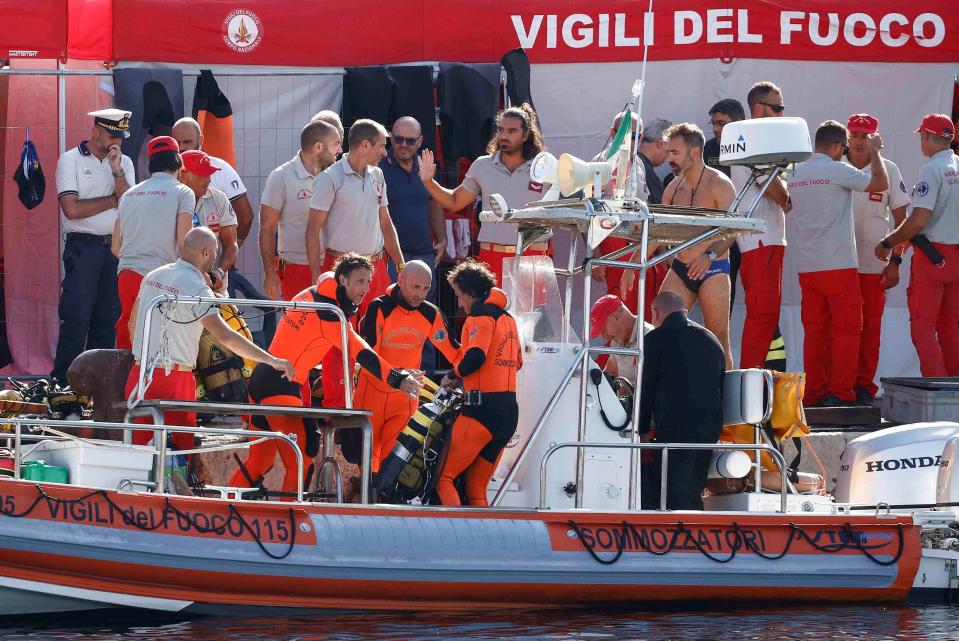-
Mike Lynch was unexpectedly acquitted by a jury after a dramatic 12-year legal saga.
-
HP accused him of falsifying the accounting of his company Autonomy to make it appear worth billions more.
-
Ultimately he won, but within days he, his lawyer and his co-defendant died.
In 2011, Mike Lynch was the star of the tech world.
Lynch, who has been called Britain’s Bill Gates, sold Autonomy, his pioneering data management company, to Hewlett-Packard for $11 billion.
Shareholders and business commentators wondered what HP, a hardware company, would do with Autonomy, a software company — and why it was worth $11 billion. HP executives said at the time that Autonomy had the potential to transform HP and lead the Silicon Valley giant into a new generation.
None of that happened. A year after the acquisition, HP wrote off $8.8 billion of the purchase price and accused Lynch of lying about Autonomy’s finances.
The claim led to a series of legal disputes that lasted for ten years.
Another Autonomy executive, Sushovan Hussain, was convicted of fraud in 2018 and sentenced to five years in prison. Federal prosecutors filed criminal charges against Lynch and Stephen Chamberlain, the former vice president of finance.
Lynch’s trials ended with a three-month criminal trial in San Francisco. After only two days of deliberation, jurors found Lynch and Chamberlain not guilty on all counts.
“The truth has finally prevailed,” said his lawyer Charles Morvillo.
Within months, Lynch, Chamberlain and Morvillo were all dead.
A takeover that was doomed to failure from the start
Lynch, who studied neural networks for his doctorate at the University of Cambridge, spun off Autonomy from an earlier company, Cambridge Neurodynamics, in 1996.
Using advanced algorithms, Autonomy allowed users to organise and search through vast amounts of unstructured data. It was a bright spot in the UK tech industry and was listed on the country’s stock market index.
According to the New York Times, Autonomy’s customers included Oracle, Adobe, Cisco and HP itself.
But HP’s purchase of Autonomy was controversial. The hardware company’s CEO, Léo Apotheker, who had been in the role for less than a year, was trying to change the company’s direction. HP was struggling to sell printers and servers as part of its traditional hardware business. Apotheker wanted to spin off HP’s personal computing division and take a big gamble by moving the company into software, which had higher margins.
Analysts opposed the idea. Shareholders filed a lawsuit. HP’s stock price fell by more than half. The company’s board fired Apotheker within weeks of the decision to buy Autonomy, before the deal was even closed.
His successor, Meg Whitman, fired Lynch and wrote down Autonomy’s value by $8.8 billion, indicating that HP paid nearly four times what it should have. New York Times columnist James B. Stewart called it the worst acquisition in corporate history — even worse than AOL’s ill-fated purchase of Time Warner.

In a stunning move, HP accused Lynch of fraud the following year. The company alleged that he and Hussain, a former CFO, had inflated Autonomy’s sales figures. The FBI and Britain’s Serious Fraud Office both opened investigations.
Lynch vehemently denied allegations of wrongdoing. He pointed out that Autonomy was audited by Deloitte, which had previously found no problems. According to Lynch, HP strangled Autonomy with mismanagement and bureaucracy that drove employees away and hampered sales.
Lynch said the culture at HP was toxic.
“It was like getting on a plane, realising the engine was on fire and then going into the cockpit you saw the pilots arguing,” he told The Telegraph at the time.
According to The New York Times, the shareholder lawsuit against HP brought up the company’s own due diligence report, prepared by KPMG. It found flashing red flags in Autonomy’s financial transparency, but Apotheker went ahead with the acquisition anyway, deciding Autonomy’s potential was worth it.
A legal quagmire
The UK’s Serious Fraud Office announced in January 2015 that it had closed its investigation into Autonomy. There was insufficient evidence to warrant legal action, but it did refer some issues to the US Department of Justice.
In the months that followed, HP and Lynch filed lawsuits against each other in the U.K. As those cases worked their way through the U.K. legal system, U.S. prosecutors continued to investigate HP’s purchase of Autonomy. In 2016, they filed fraud charges against Sushovan Hussain, who was found guilty in a 2018 jury trial. U.K. regulators formally barred him from the financial industry earlier this year after he completed a five-year prison sentence he was serving in the U.S.
HP completely divested Autonomy, selling off parts of it in 2016 and 2017.
In November 2018, Justice Department prosecutors went directly after Lynch and Chamberlain, who had served as vice president of finance at Autonomy.
According to the indictment, Lynch and Chamberlain falsified financial documents, lied to accountants and regulators, and suppressed the voices of people critical of Autonomy’s financial practices.
Lynch no longer looked forward to civil battles over money. He faced the prospect of up to 20 years in prison.


For years, Lynch fought extradition to the US. He was powerful in British political circles — he advised David Cameron and sat on the boards of the BBC and the British Museum — and he and his lawyers argued that his legal troubles should be fought in the UK, not the US. US criminal laws were unfair to him, his lawyers said.
HP’s lawsuit against Lynch—still raging in the background—finally went to trial in 2019, with Apotheker testifying that he would have walked away from the Autonomy acquisition if he had better understood its finances. Lynch argued that the whole morass had been orchestrated by Whitman, Apotheker’s successor, who had political ambitions (she ran for governor of California and currently serves as U.S. ambassador to Kenya) and wanted to shift the blame for Autonomy’s failures to someone else.
Robert Hildyard, the judge who oversaw the case, ruled largely in HP’s favor. In a 2022 ruling that ran to more than 1,700 pages, he wrote that HP had overpaid Autonomy because of deception by Lynch and Hussein. Hildyard had not yet decided how much damages they would have to pay, but he wrote that it would be “significantly less” than the $5 billion HP sought.
Even though he was no longer involved in legal battles, Lynch remained an entrepreneur. He founded a venture capital firm, Invoke Capital, and invested in and helped lead the cybersecurity company Darktrace, which, according to Politico has deep ties to the British intelligence services.
Financial disclosures Lynch made last year as part of his criminal case showed he was worth about $450 million.
The criminal process
The UK eventually extradited Lynch to the US in May 2023, where he has been preparing for trial – along with Chamberlain as a co-defendant – while under house arrest in San Francisco.
Lynch had an excellent legal team at his disposal, but after losing the British trial and Hussain’s conviction, the chances of an acquittal seemed slim.
Testifying at the end of his three-month trial, which began in March, Lynch told jurors that he was not involved in the day-to-day financial oversight of the company. Any misunderstandings, he said, could be attributed to differences between British and American accounting practices.
“A lot of what we looked at was like looking through the door of a kitchen and seeing the sausage machine, and that’s really how it works,” he told the judges, according to the Times of London. “If you took the microscope into even the most spotless kitchen, you would find bacteria. If it wasn’t there, that would be something very abnormal. I don’t think Autonomy was any different.”
Jurors believed him. In June, they found Lynch not guilty of the 15 charges against him, and also acquitted Chamberlain.


Charles Morvillo, one of Lynch’s attorneys in the trial — and also in the previous decade of legal disputes — praised the jury’s “rejection of the government’s extensive involvement in this case.”
“This verdict closes the book on a relentless 13-year effort to pin HP’s well-documented incompetence on Dr. Lynch,” Morvillo said in a joint statement with his attorney colleague Brian Heberlig. “Thankfully, the truth has finally prevailed.”
In an interview with the Times of London after the trial, Lynch reflected on how, at age 59, having a great burden lifted from him, he was able to reshape his life.
He was grieving the deaths of his brother and mother, both of whom died before the criminal trial. He considered using his fortune to set up a British version of The Innocence Project, which works to prevent wrongful convictions in the US.
“Now you have a second life,” he told the Times. “The question is, what do you want to do with it?”
But first, a party. Lynch, his wife Angela Bacares, one of his two daughters, his lawyer Morvillo and his wife Neda Morvillo, and a few others boarded a superyacht, The Bayesian, anchored off Sicily and owned by Bacares.
Chamberlain moved back to the UK. While running near his home, he was hit by a driver. He died in hospital on Saturday.
On August 19, The Bayesian was suddenly hit by a storm. The yacht capsized.
Of the 22 passengers, 15 were rescued, including Bacares.
But rescuers have pulled five bodies from the wreckage, including Morvillo and Lynch. A sixth is still trapped in the boat. Lynch’s daughter Hannah is still missing.
Read the original article on Business Insider